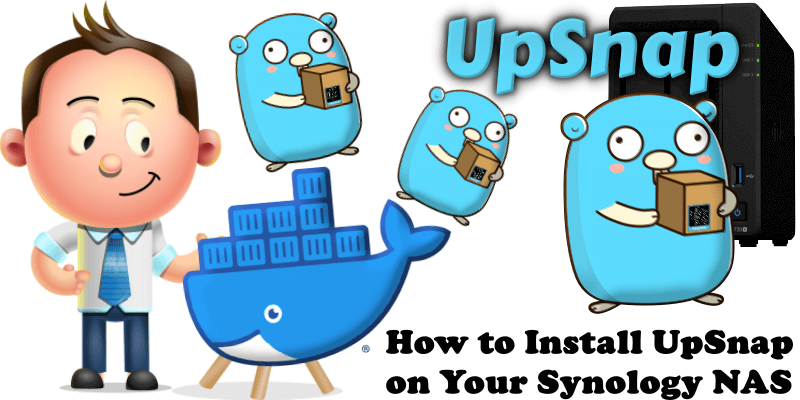
UpSnap is a simple Wake on LAN app written with SvelteKit, Go, PocketBase and Nmap. Discover all devices on your Network by scanning it with just one click. You can easily set timed wake and shutdown events via cron. You also have the option to add custom ports to devices which will be pinged. In this step by step guide I will show you how to install UpSnap on your Synology NAS using Docker & Portainer.
STEP 1
Please Support My work by Making a Donation.
STEP 2
Install Portainer using my step by step guide. If you already have Portainer installed on your Synology NAS, skip this STEP. Attention: Make sure you have installed the latest Portainer version.
STEP 3
Go to File Station and open the docker folder. Inside the docker folder, create one new folder and name it upsnap. Follow the instructions in the image below.
Note: Be careful to enter only lowercase, not uppercase letters.
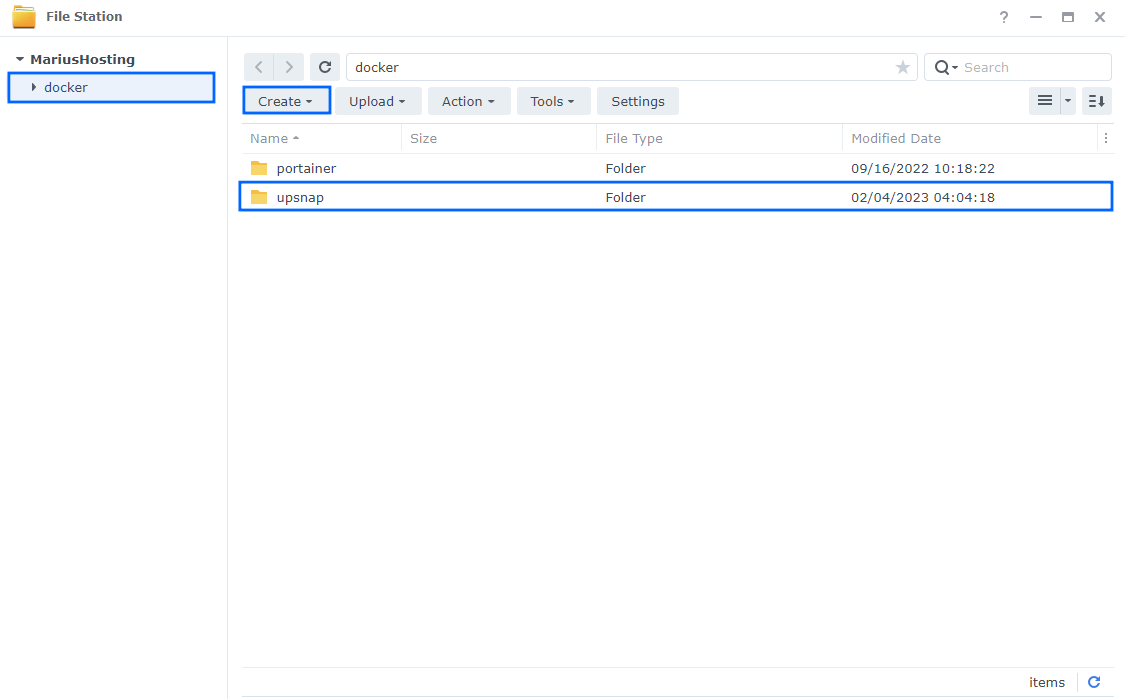
STEP 4
Log into Portainer using your username and password. On the left sidebar in Portainer, click on Stacks then + Add stack. Follow the instructions in the image below.
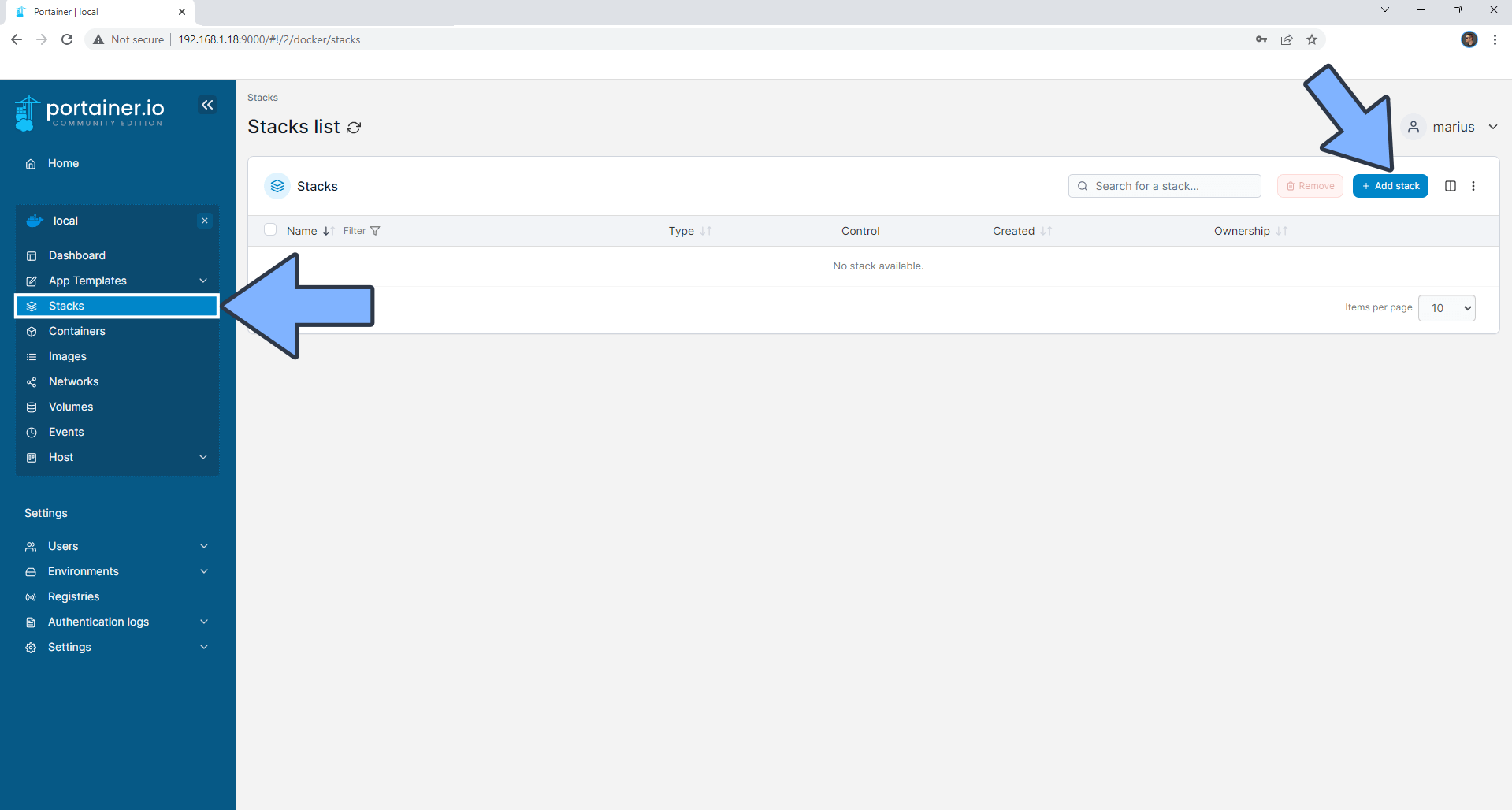
STEP 5
In the Name field type in upsnap. Follow the instructions in the image below.
services:
upsnap:
image: ghcr.io/seriousm4x/upsnap:5
container_name: UpSnap
mem_limit: 512m
cpu_shares: 768
healthcheck:
test: curl -f http://localhost:80/ || exit 1
network_mode: host
restart: on-failure:5
environment:
- TZ=Europe/Bucharest
volumes:
- /volume1/docker/upsnap:/app/pb_data:rw
Note: Before you paste the code above in the Web editor area below, change the value for TZ (Select your current Time Zone from this list).
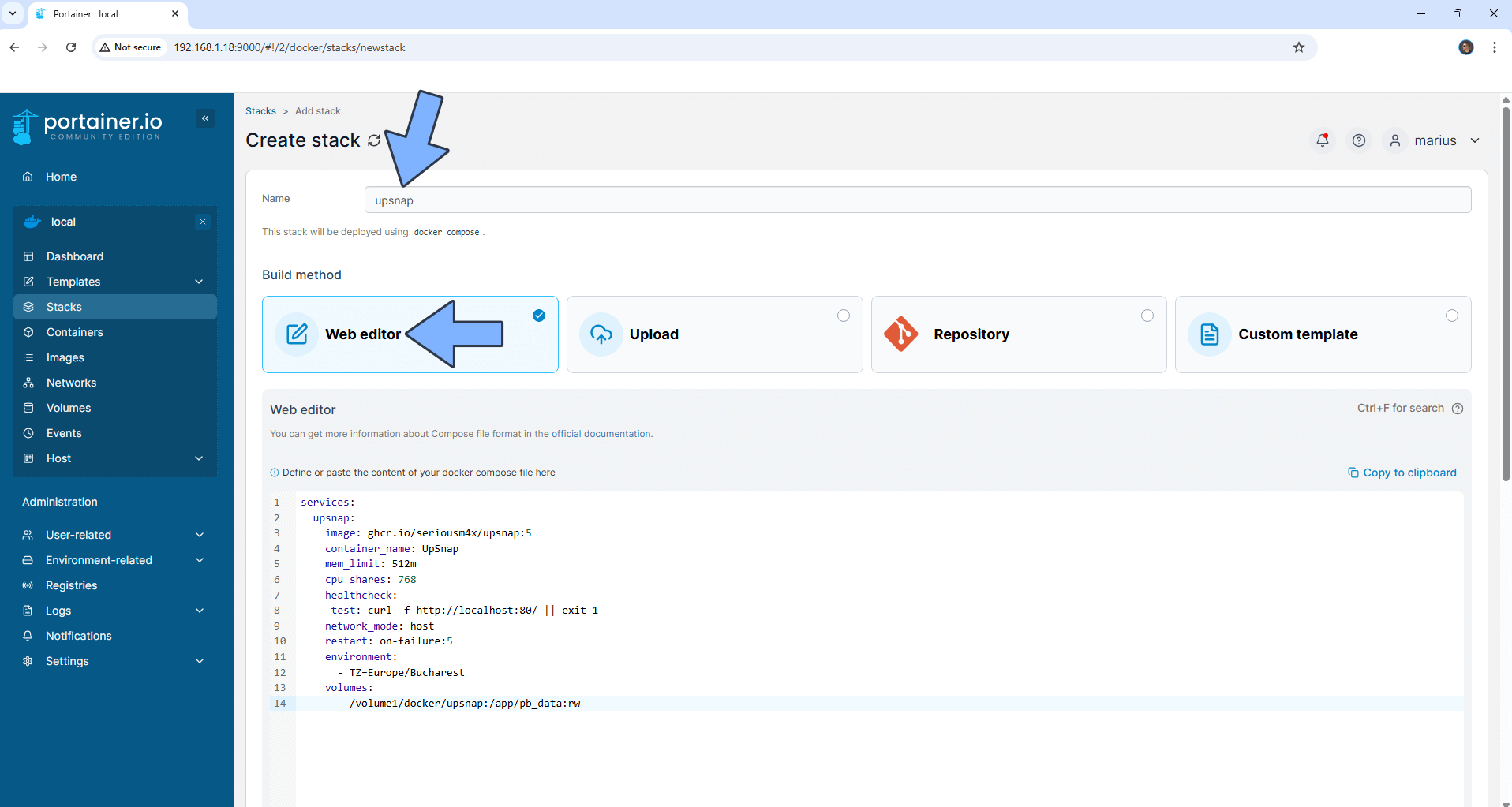
STEP 6
Scroll down on the page until you see a button named Deploy the stack. Click on it. Follow the instructions in the image below. The installation process can take up to a few minutes. It will depend on your Internet speed connection.
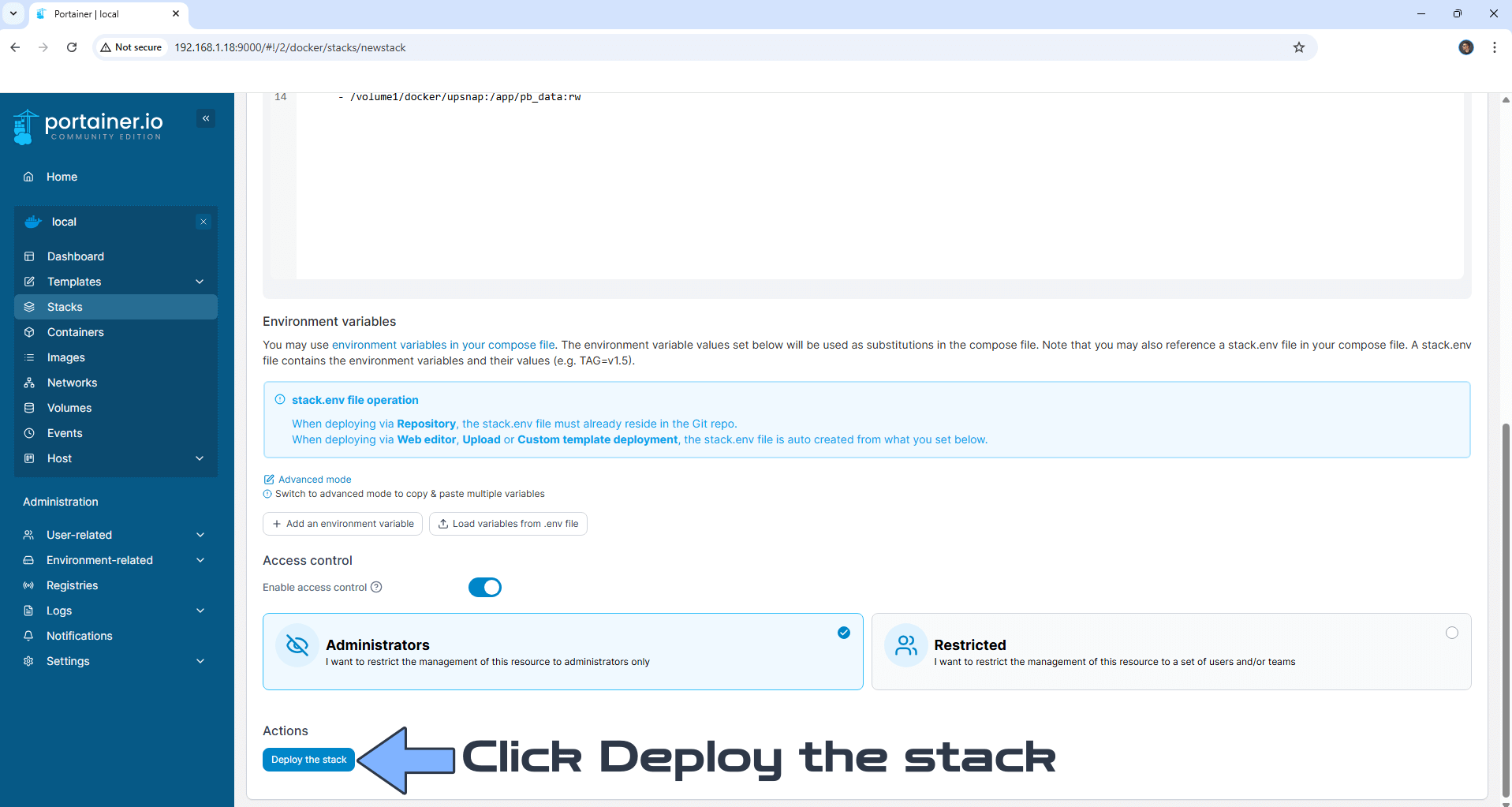
STEP 7
If everything goes right, you will see the following message at the top right of your screen: “Success Stack successfully deployed“.
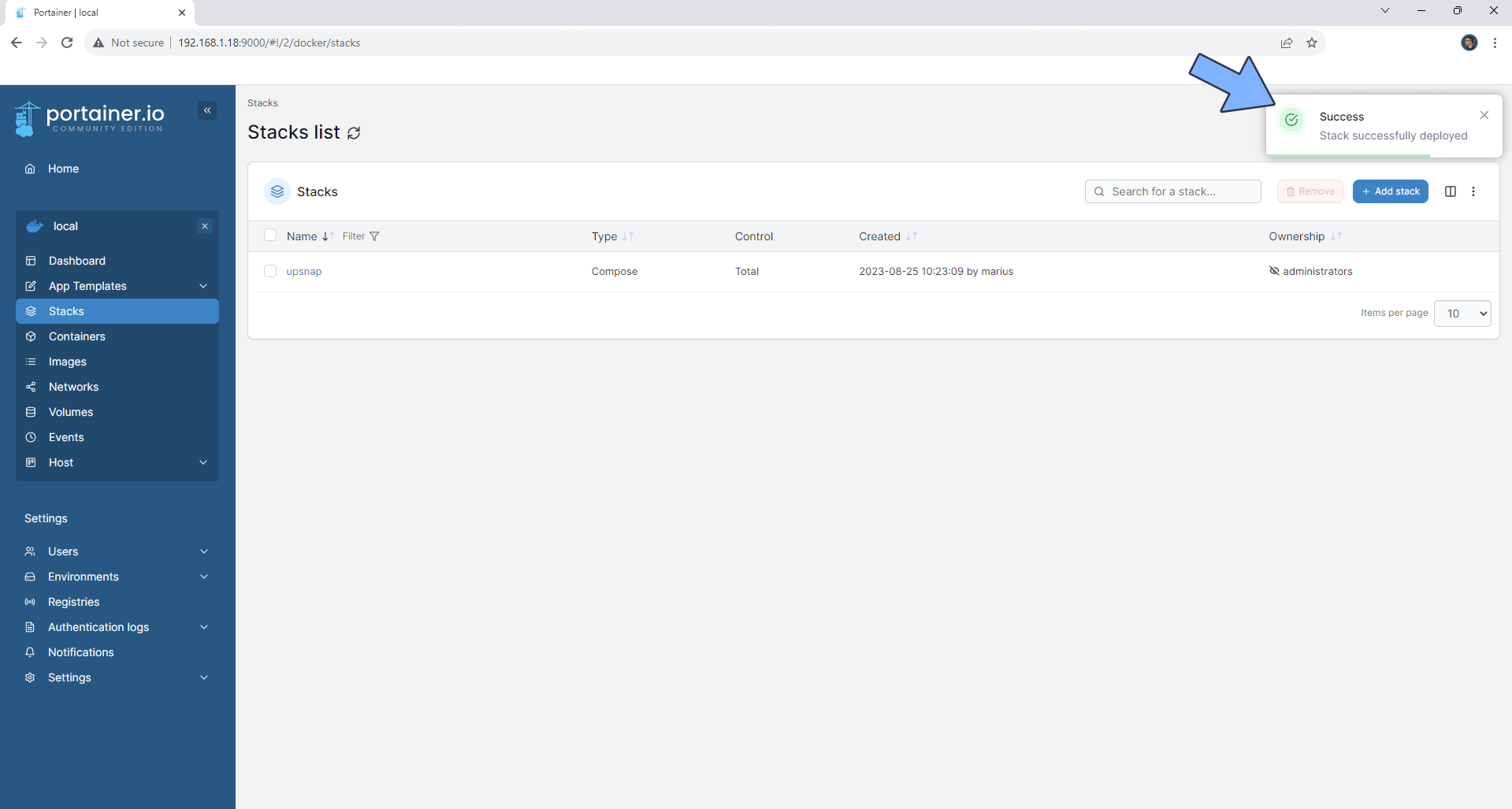
STEP 8
🟢Please Support My work by Making a Donation. Almost 99,9% of the people that install something using my guides forget to support my work, or just ignore STEP 1. I’ve been very honest about this aspect of my work since the beginning: I don’t run any ADS, I don’t require subscriptions, paid or otherwise, I don’t collect IPs, emails, and I don’t have any referral links from Amazon or other merchants. I also don’t have any POP-UPs or COOKIES. I have repeatedly been told over the years how much I have contributed to the community. It’s something I love doing and have been honest about my passion since the beginning. But I also Need The Community to Support me Back to be able to continue doing this work.
STEP 9
Now open your browser and type in http://Synology-ip-address:8090 If everything goes right you will see the UpSnap registration page. Click NEXT. Follow the instructions in the image below.
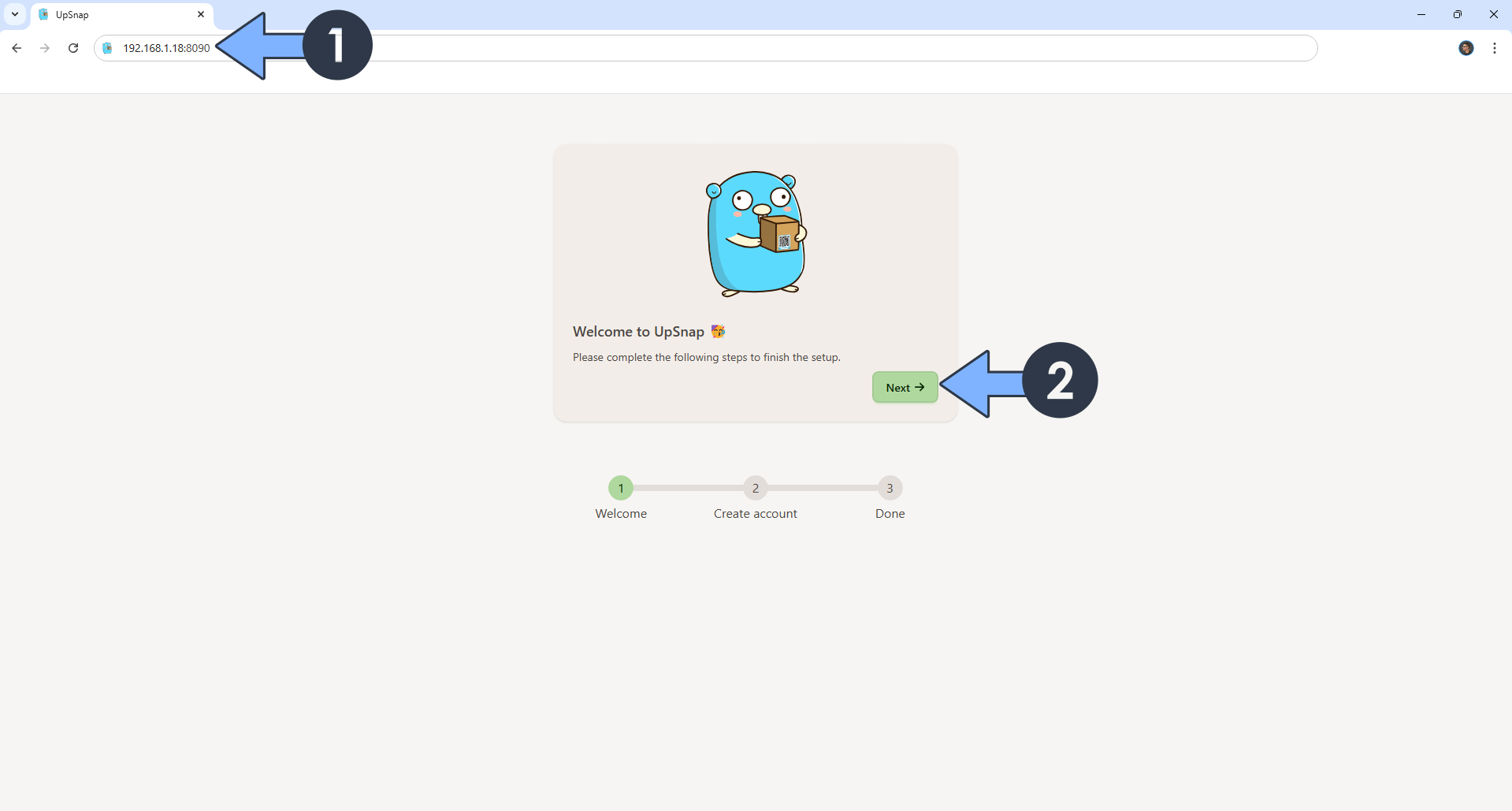
STEP 10
Type in your own Email address and Password then click Create. Follow the instructions in the image below.
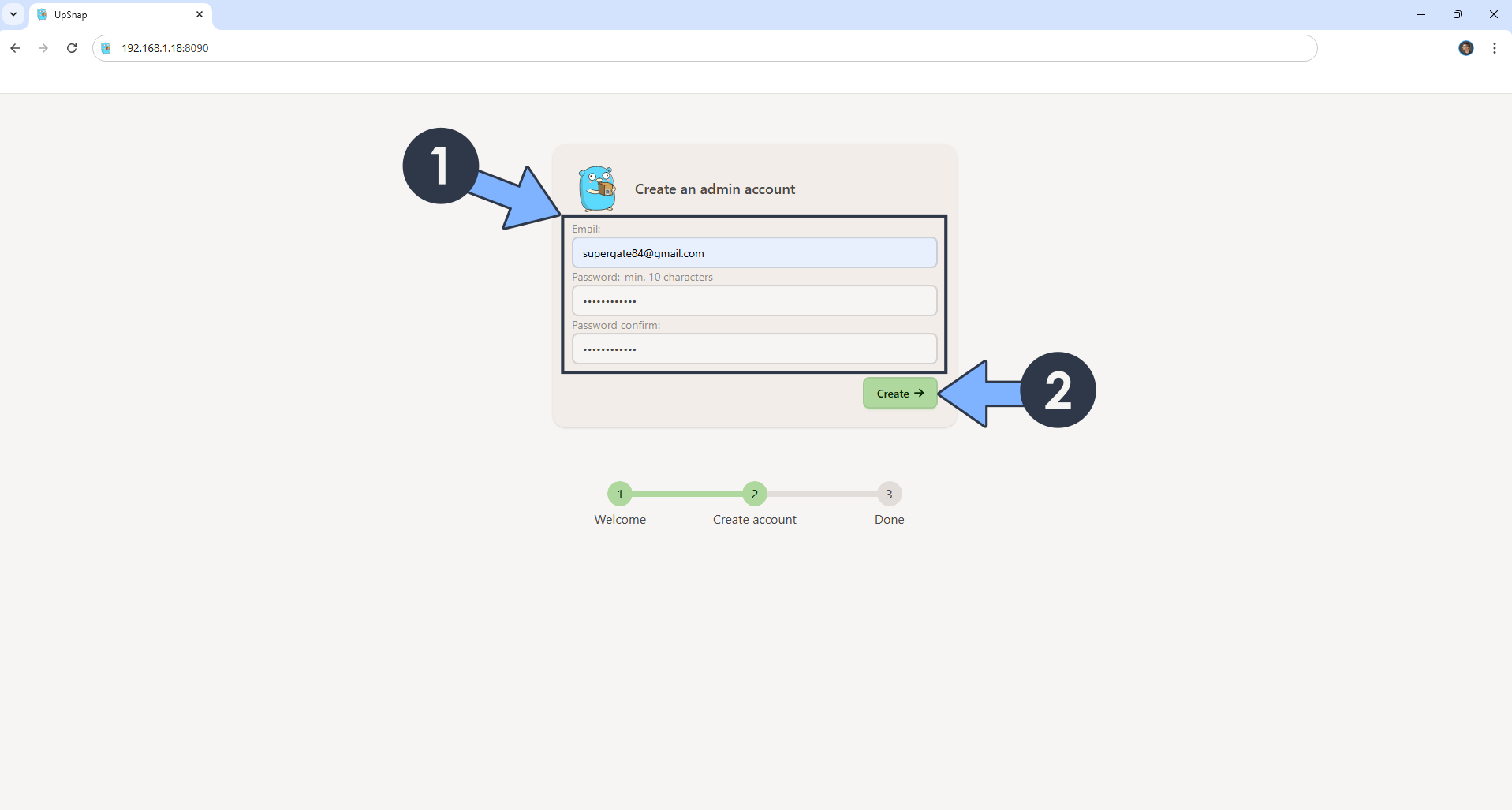
STEP 11
Click Lets go! Follow the instructions in the image below.
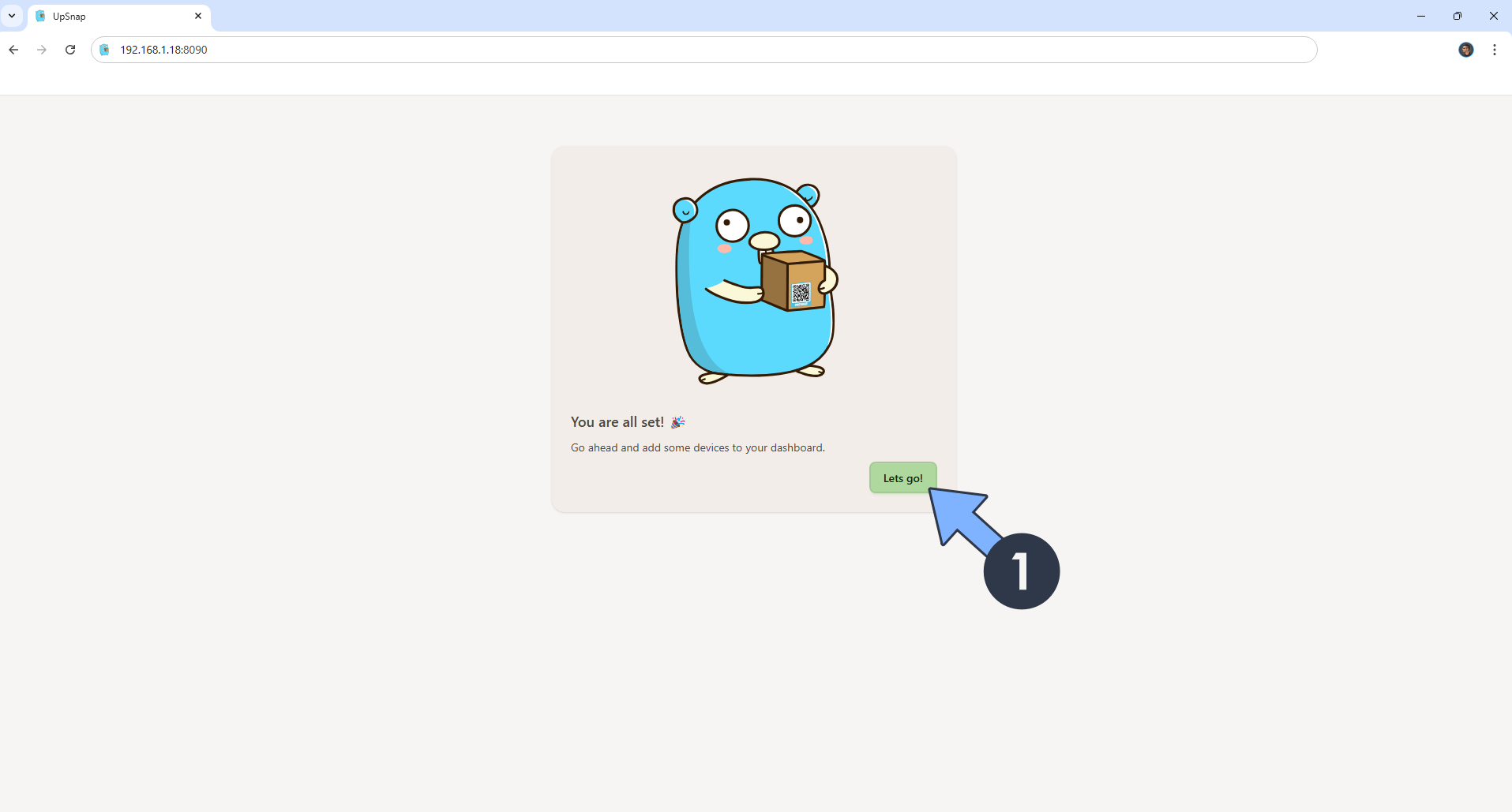
STEP 12
From the menu select Theme then your favorite theme combination. Click + ADD YOUR FIRST DEVICE on the center of the page. Follow the instructions in the image below.
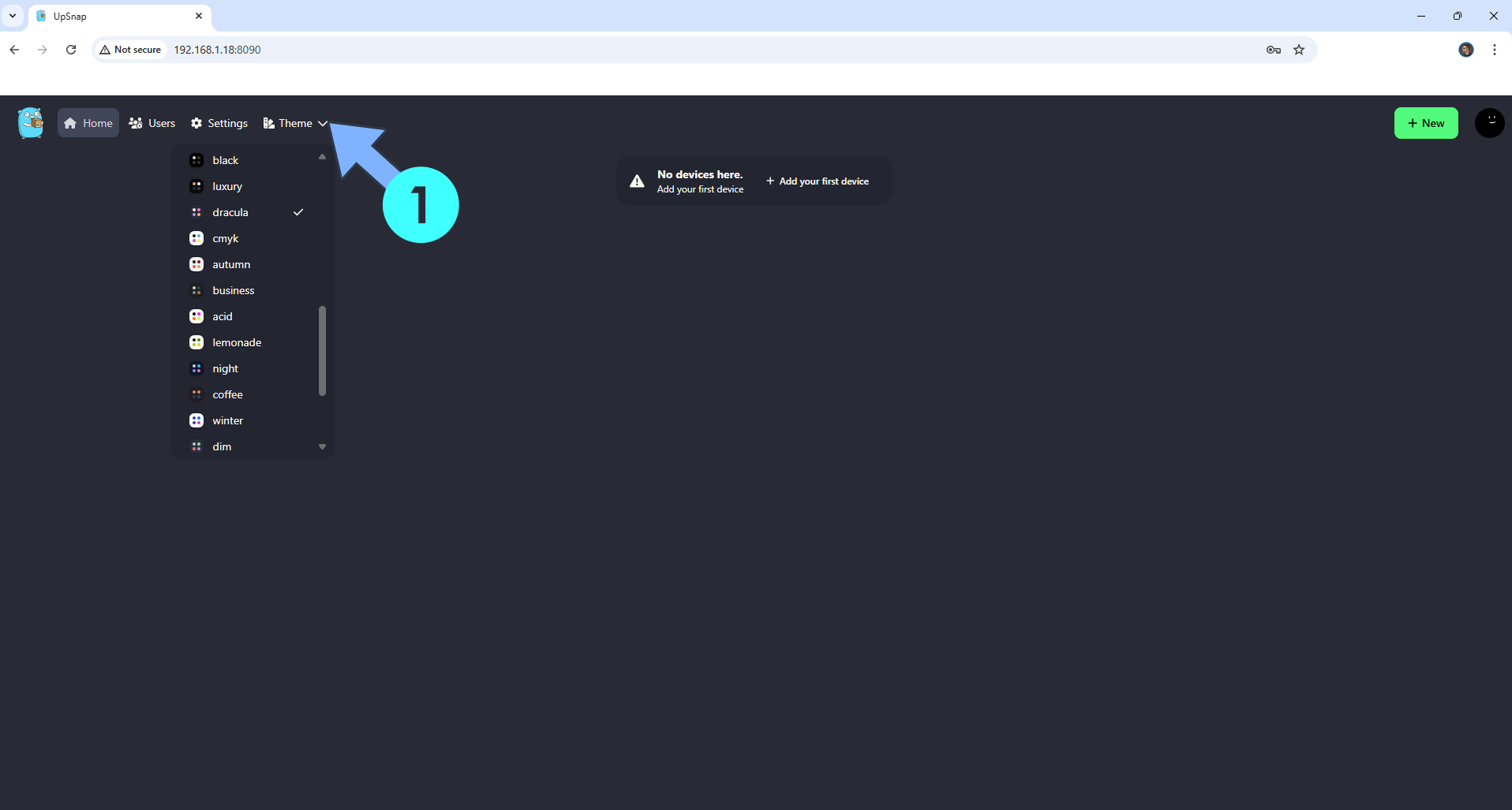
STEP 13
Click the Network Scan tab. In the IP range area, type in the network address you want to scan. For example 192.168.1.0/24 then click SAVE then SCAN. Follow the instructions in the image below.
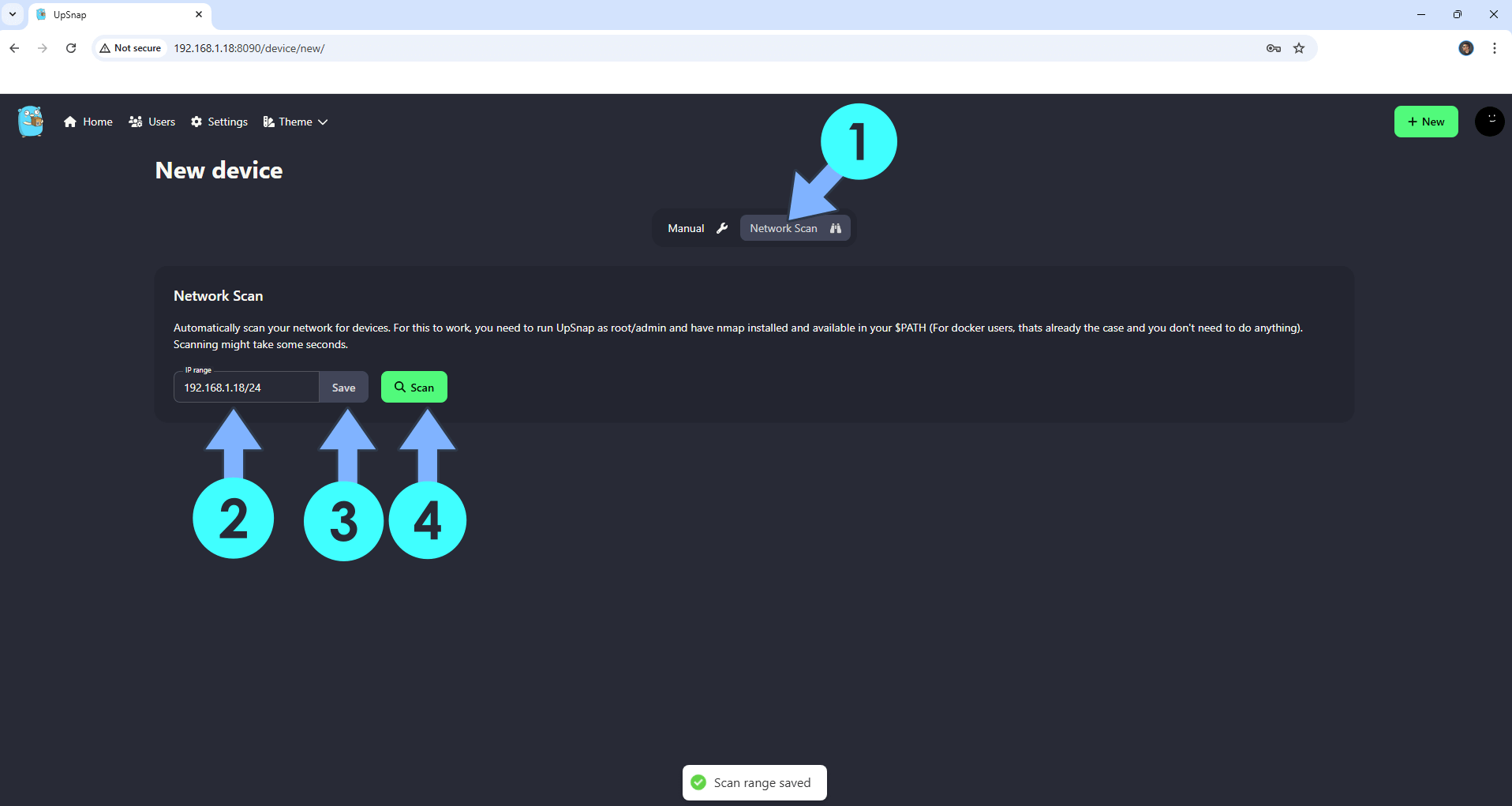
STEP 14
After the Scan is finished, scroll down the page. Follow the instructions in the image below.
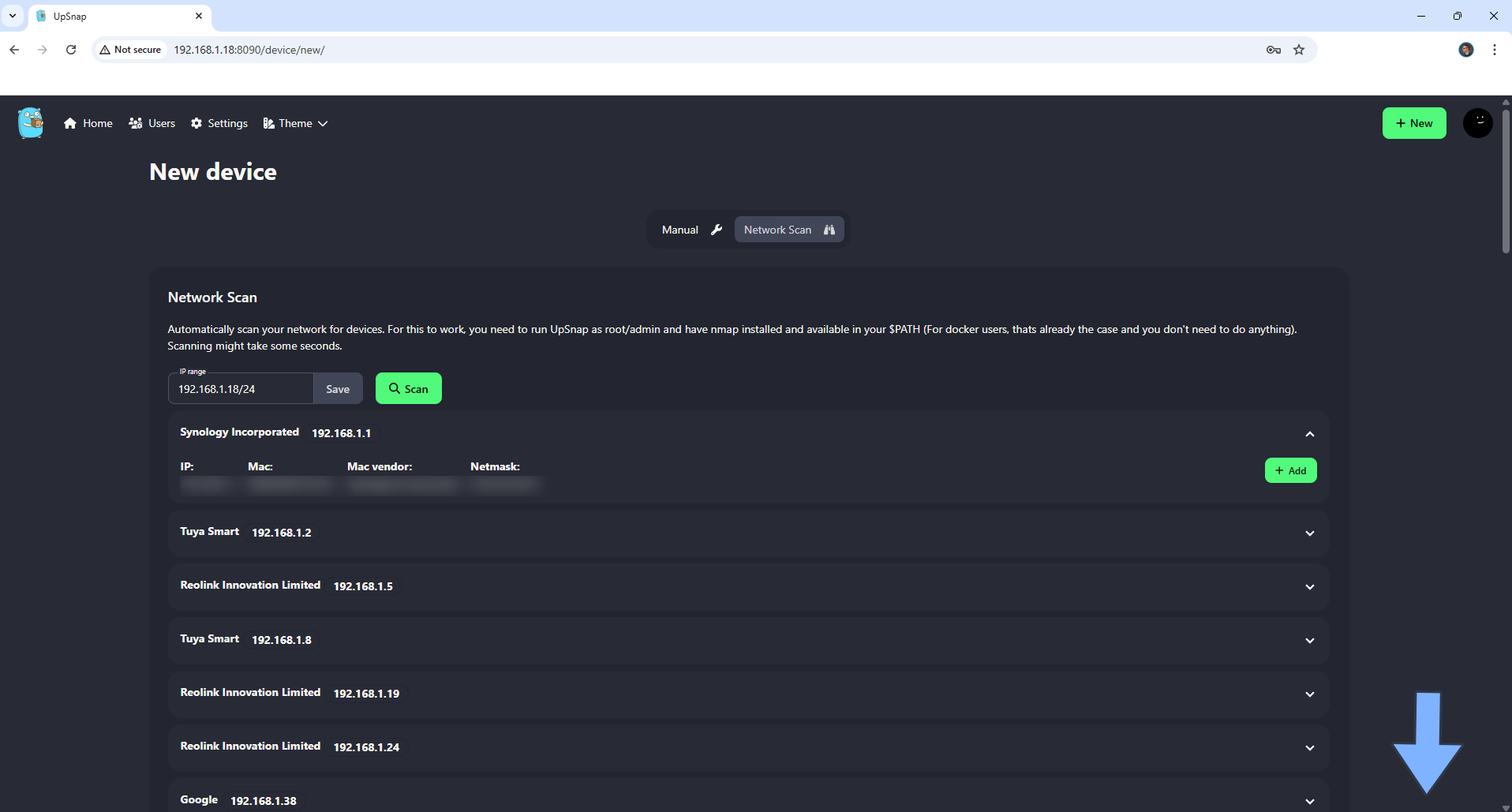
STEP 15
Click + Add all devices. Follow the instructions in the image below.
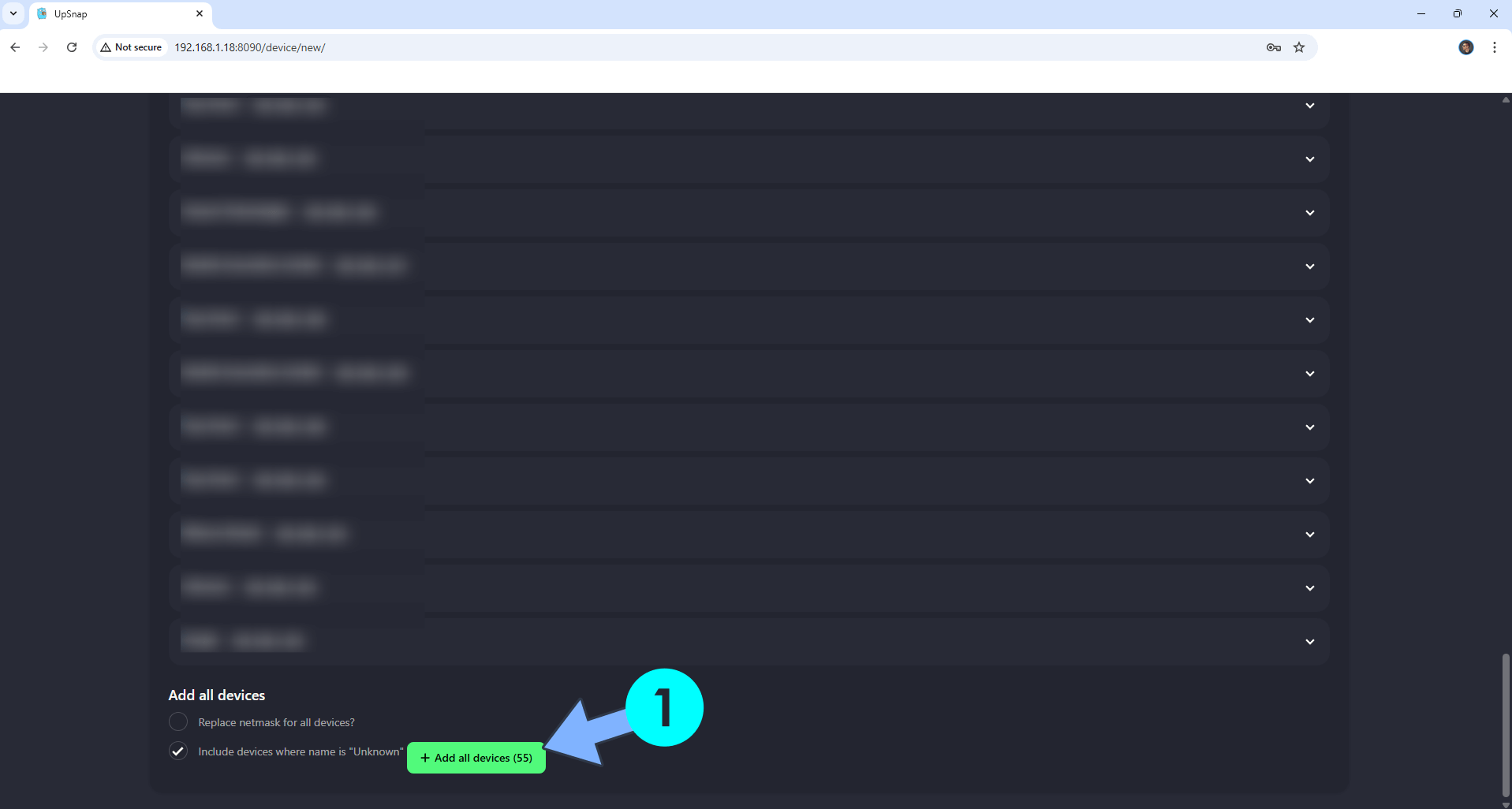
STEP 16
Your full list of devices at a glance! You can easily change the settings of every device and run the Wake or Shutdown cron. Follow the instructions in the image below.
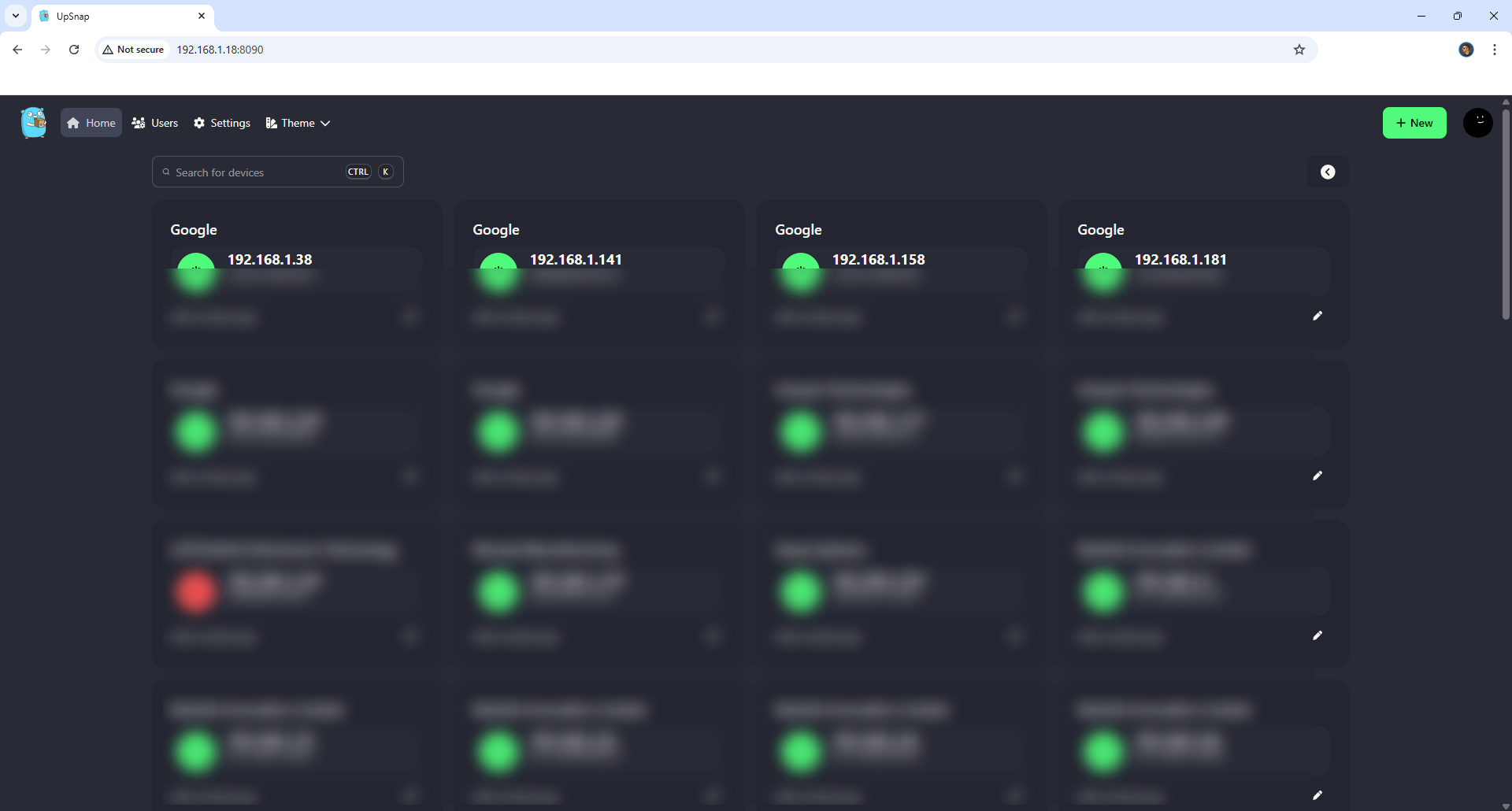
Enjoy UpSnap!
If you encounter issues by using this container, make sure to check out the Common Docker issues article.
Note: Can I run Docker on my Synology NAS? See the supported models.
Note: How to Back Up Docker Containers on your Synology NAS.
Note: Find out how to update the UpSnap container with the latest image.
Note: How to Free Disk Space on Your NAS if You Run Docker.
Note: How to Schedule Start & Stop For Docker Containers.
Note: How to Activate Email Notifications.
Note: How to Add Access Control Profile on Your NAS.
Note: How to Change Docker Containers Restart Policy.
Note: How to Use Docker Containers With VPN.
Note: Convert Docker Run Into Docker Compose.
Note: How to Clean Docker.
Note: How to Clean Docker Automatically.
Note: Best Practices When Using Docker and DDNS.
Note: Some Docker Containers Need WebSocket.
Note: Find out the Best NAS Models For Docker.
Note: Activate Gmail SMTP For Docker Containers.
This post was updated on Monday / July 14th, 2025 at 10:41 AM
